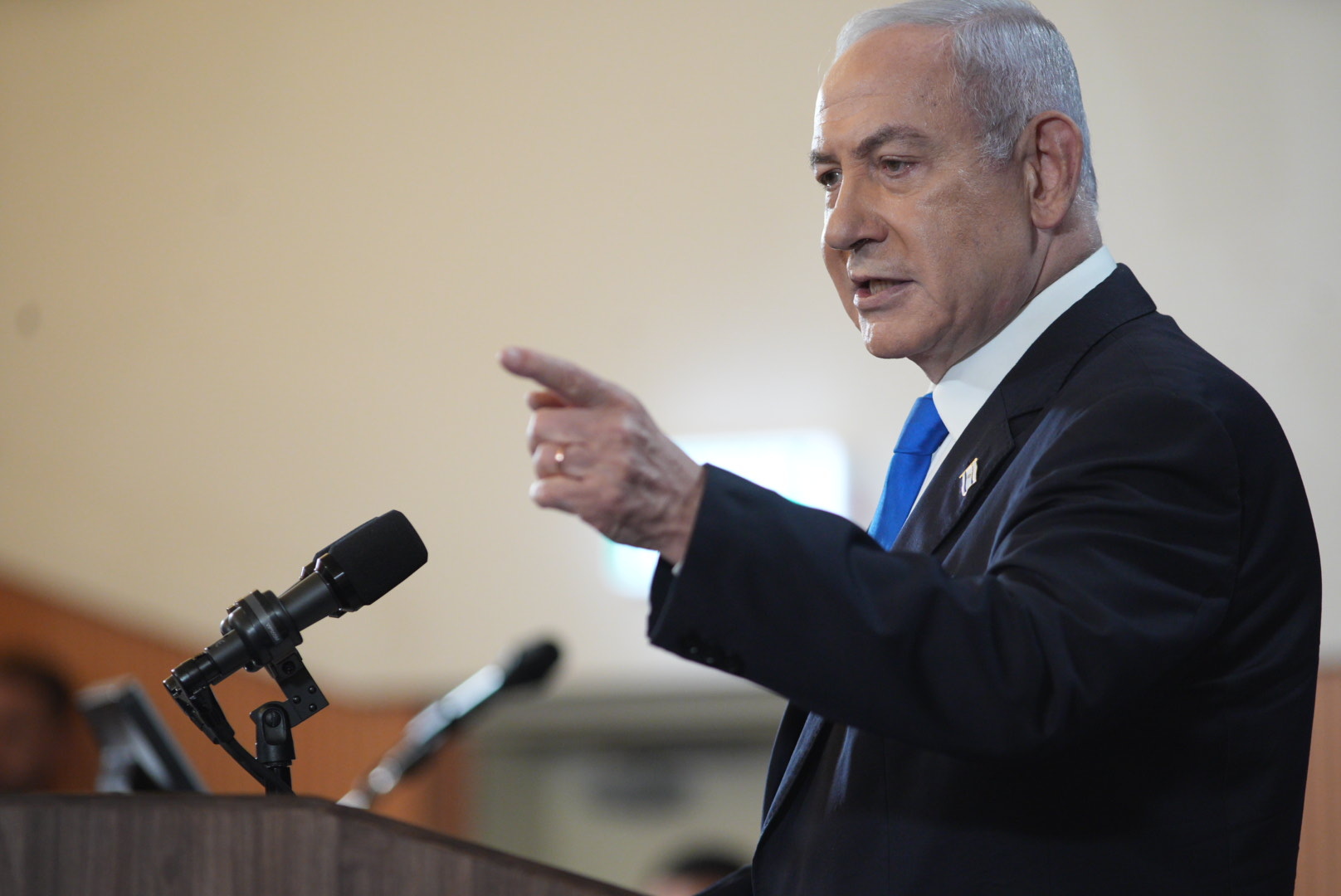Netanyahu, 10 months after Oct. 7: ‘I am sorry, deeply, that something like this happened’
Netanyahu made the comments in an hour-long interview with Time Magazine

Israeli Prime Minister Benjamin Netanyahu holds a press conference at the Ministry of Defense in Tel Aviv. July 13, 2024. (Dudu Bachar/Pool/Flash 90)
(JTA) — Israeli Prime Minister Benjamin Netanyahu has apologized for the Oct. 7 attack by Hamas in which more than 1,200 Israelis were killed and more than 250 were taken hostage.
“I am sorry, deeply, that something like this happened,” he told Time Magazine during an hourlong interview this week in Jerusalem.
The interview, which Time published in full, was Netanyahu’s first major one with any news organization since Oct. 7. Eric Cortellessa, Time’s national political correspondent, interviewed the prime minister shortly after his visit to the United States, where he addressed Congress and vowed to press on with Israel’s war against Hamas in Gaza.
After asking Netanyahu about the threat posed by Iran and his handling of Hamas prior to Oct. 7, Cortellessa asked Netanyahu why the only apology he had made since the attack was to military and security officials whom he had blamed for it.
The heads of the IDF and the Shin Bet apologized for October 7. When you apologized, it was for a social media post blaming the military and security establishment. Why have you not apologized to the Israeli people for October 7?
I’ve said that following the end of the war, there’ll be an independent commission that will examine everything that happened before, and everybody will have to answer some tough questions, including me.
Will you do it right now? Will you apologize?
I don’t think we can do it right now in the middle of a war. Apologize? Of course, of course. I am sorry, deeply, that something like this happened. And you always look back and you say, could we have done things that would have prevented it? You’d have to be—how could you not?
Sure, but what is your accountability for it?
I think we’ll examine all that, that question, and examine it in detail, exactly what happened? How did it happen? How did this failure of intelligence, operational capability and other policies that contributed? There’ll be enough time to deal with it. But I think that dealing with it now is a mistake. We’re in the midst of a war, a seven-front war. I think we have to concentrate on one thing: winning.
Cortellessa asked Netanyahu about the many criticisms being leveled about his leadership, including that he was foolish to support Hamas in the past, that he has excessively empowered the far-right in Israel and that he might be prolonging the war to ensure that he stays in power. The prime minister batted away the concerns, saying that in each case the allegations were lies or distortions. He also said he had no plans to step aside, even as a majority of Israelis in polls say he should.
“I will stay in office as long as I believe I can help lead Israel to a future of security, enduring security and prosperity,” he said.
In the immediate aftermath of the Oct. 7 attack, one takeaway was that Netanyahu’s longstanding reputation as “Mr. Security” appeared to have been wiped away. In the months since, the criticism has grown. Netanyahu said he wasn’t bothered and that he would continue to do what he believed was necessary to keep Israelis safe.
“I’d rather have bad press than a good obituary,” he told Cortellessa.
A message from our Publisher & CEO Rachel Fishman Feddersen

I hope you appreciated this article. Before you go, I’d like to ask you to please support the Forward’s award-winning, nonprofit journalism during this critical time.
We’ve set a goal to raise $260,000 by December 31. That’s an ambitious goal, but one that will give us the resources we need to invest in the high quality news, opinion, analysis and cultural coverage that isn’t available anywhere else.
If you feel inspired to make an impact, now is the time to give something back. Join us as a member at your most generous level.
— Rachel Fishman Feddersen, Publisher and CEO






















